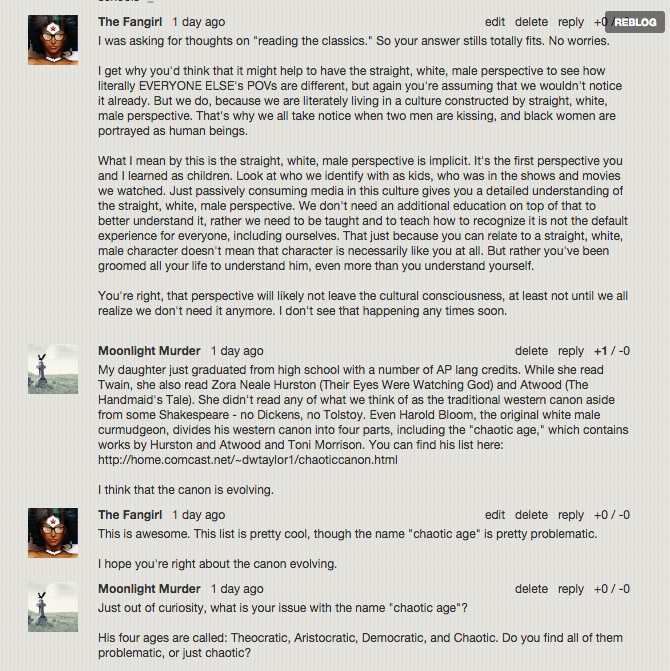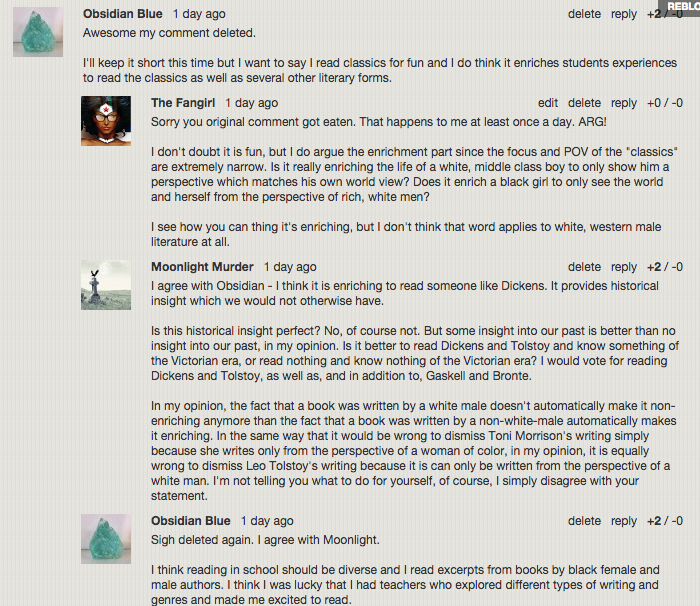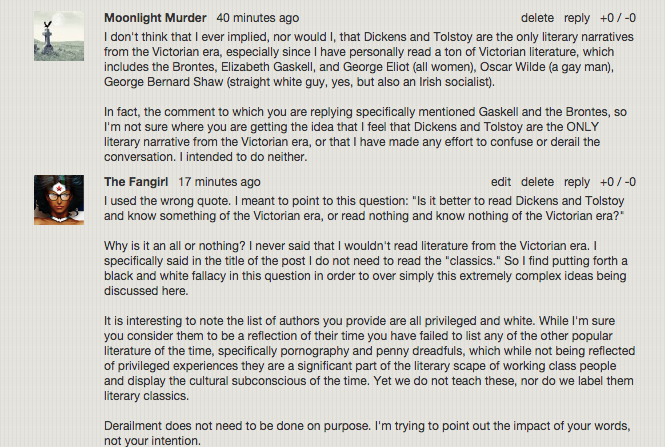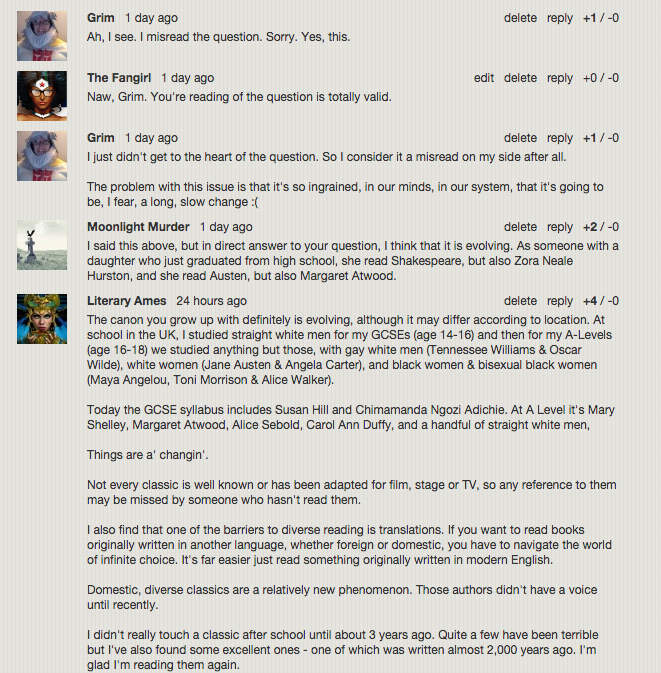The Fangirl
Long time geek, fangirl, mother, and reader. I've got a lot to say, you might not like it all, but it will be honest and hopefully helpful.
No, I Don't Need to Read the Classics.
The following is a response to Ariel Bissett's Booktube video The Literary Canon. I think the video is great, and highly recommend watching it before reading my response.
I think a lot of people agree with Ariel's points, which is why I wanted to post my response here. So that people who believe this can see it from a different perspective.
You, yourself, pointed out how much White Western literature is in our everyday lives, and media. Everything from the tv show Selfie (a modern retelling of My Fair Lady, which is also a retelling of Pygmalion) to BBC Sherlock. So it is unfair to assume that even though I may not have actually read Pygmalion, I am ignorant of it's themes and cultural significance, especially in how it has contributes to our attitudes about gender and class.
I am one of the people who resists reading most of the "classics" for a few reasons. First, this claim is often used to ignore or discredit criticism that does not align with mainstream views of these works, i.e. "how can you criticize the racist portrayals of black people and slavery in Gone with the Wind if you've never read it?" This quote is literally something said to me in response to my criticism of framing Scarlet O'Hara as a feminist icon.
Second, I should not need to learn the language and culture of the oppressing class in order for my perspective and contribution to be valued and heard.
I think it was your intention to imply that I have to understand the ideas of white western men in order to subvert them. That sounds great, but it doesn't actually work. Asking a person marginalized by a system to adapt to that system in order to overthrow it assumes that the process of adaptation doesn't affect them and their views of themselves.
What I mean, is we all grew up in the culture created by white western men. We all suffer from internalized racism and misogyny that comes from being raised in a culture that doesn't listen to our voices unless we act and talk like white western men. Anything that deviates from those (white western male standards) is othered. This is especially so in literature, chick lit, romance, black literature, LGBTQ+ lit, etc.
This kind of environment doesn't nurture change, it safeguards the status quo. "If you don't look like us, you at least have to act and speak like us or we can't understand you and won't listen." It is this self perpetuating cycle that is built to sustain itself against opposition, and install itself as the dominant standard for all others to adhere to.
Where even marginalized authors tell their stories in a format that fits how a white western male author would write it because we've been taught that is the standard by which literary excellence is measured. If you can't write like a white western man, you're not a good writer. Or if a white western man doesn't understand or want to read your story, it's not worth reading.
THAT is why most people don't read diversely. Not because they are actively aware of their own internalized bigotry, but because they were taught the white western male narrative as their own default perspective. THAT is the thinking that needs to be changed.
We need to unlearn the dominating narratives in order to find our own voices and learn to listen to the voices of other marginalized people. Reenforcing the dominance of white western literature isn't going to help with that at all.
While I think that literary criticism needs diverse voices who are familiar with the "classics" in order for us to better reexamine those classics. I think it's really important to keep in mind that not all of us have to be well versed in those "classics" in order for our art to be understood, and valued.
~~~
What are your thoughts on reading the "classics?" Feel free to comment below. :)
~~~
ETA: Someone deleted their comments from the comments thread below. In the interest of preserving the context of the conversations involving those comments I'm including some screenshots of those comments for reference.














 1
1
 7
7
 42
42